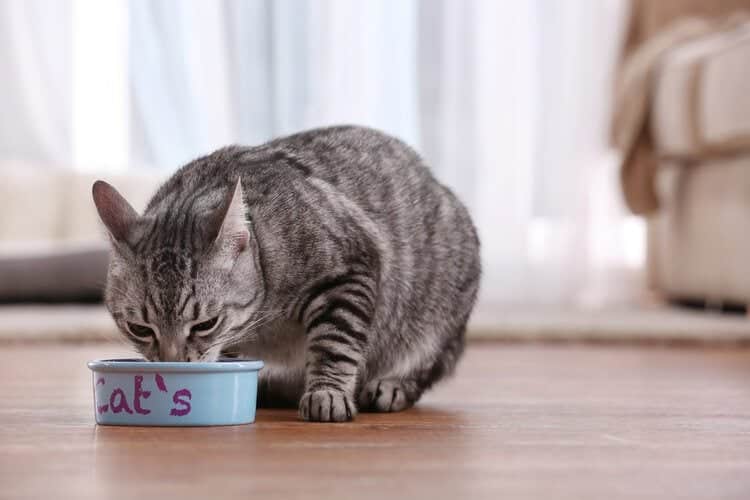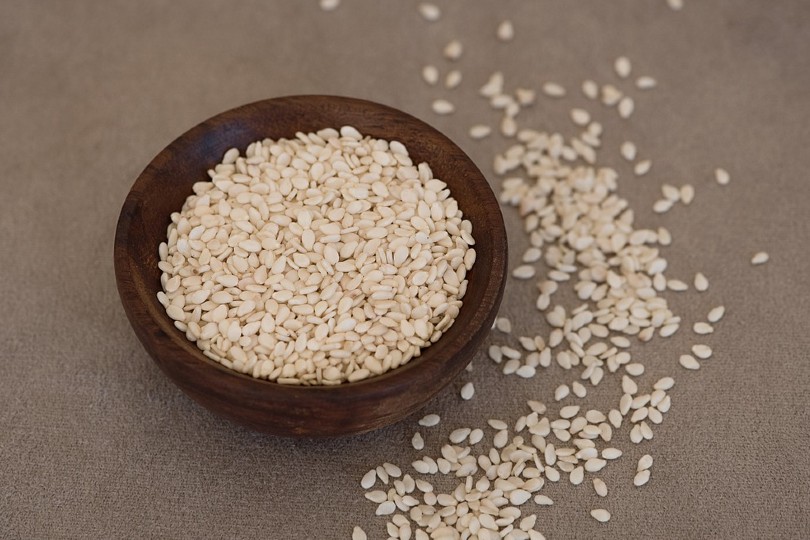Sesame seeds are a nutritious snack for humans, but are they safe for cats to consume? While sesame seeds themselves are not toxic to cats, they are not easily digestible for our feline friends. It’s best to avoid feeding sesame seeds to cats, even though they may nibble on them unintentionally. Let’s explore why.
Nutritional Benefits of Sesame Seeds
Sesame seeds are packed with essential vitamins and minerals that support the immune system. They contain vitamin B6, vitamin E, copper, iron, selenium, and zinc. These nutrients are beneficial for bone health, reducing inflammation, and fighting oxidative stress. Additionally, sesame seeds are low in carbohydrates, high in healthy fats, and rich in plant protein, which aligns well with a cat’s dietary needs.
Are Sesame Seeds Healthy for Cats?
While sesame seeds offer several potential benefits, they are not as nutritious for cats as they are for omnivores like humans and dogs. Cats are obligate carnivores, meaning they thrive on a diet primarily composed of meat protein. Their bodies are not designed to efficiently digest plant matter and extract the necessary nutrients from it.
A Cat’s Basic Dietary Needs
Cats have specific dietary requirements that should be met for their optimal health. They rely on a protein-rich diet sourced from animal meat, along with moderate amounts of healthy fats. Cats also need essential vitamins and minerals to support their bodily functions. Here’s a breakdown:
Protein
Cats cannot synthesize certain essential amino acids on their own, so they must obtain them from their food. Two important amino acids that cats need are taurine and arginine. Taurine is crucial for a kitten’s growth, eye health, and heart function. Cats deficient in taurine may develop feline central retinal degeneration (FCRD) or dilated cardiomyopathy (DCM). Therefore, it’s essential to ensure they receive adequate amounts of taurine in their diet.

Image Credit: Africa Studio, Shutterstock
Fats
Healthy fats are an important energy source for cats and carry soluble vitamins. Cats require a diet consisting of around 20% to 24% fat. Essential fatty acids, such as omega-3 and omega-6, are crucial for maintaining their overall health, including the skin, coat, eyes, and cognitive functioning.
Vitamins and Minerals
The Association of American Feed Control Officials (AAFCO) has established guidelines for essential vitamins and minerals that should be included in cat food.
Final Thoughts on Sesame Seeds and Cats
Although sesame seeds are not toxic to cats, they are not the most nutritious choice when it comes to snacks for our feline companions. It’s best to avoid feeding them sesame seeds and opt for healthier alternatives like catnip or meat-based treats instead.
If your cat happens to enjoy sesame seeds, you can offer them a small amount as an occasional treat. However, it’s important to ensure their regular diet meets their nutritional needs adequately.
Frequently Asked Questions
Q: Can cats eat poppy seeds?
A: Poppy seeds are generally safe for cats to consume. However, it’s important to provide them in moderation as part of a balanced diet.
Q: Where can I find more information on cat nutrition?
A: For more information on cat nutrition and dietary needs, visit the Pawsoha website.
Conclusion
While sesame seeds are not harmful to cats, they are not an ideal snack option due to the cat’s unique dietary requirements. It is recommended to focus on providing a balanced diet that consists primarily of meat protein and meets all the essential nutritional needs of our feline friends. For more information on cat nutrition and expert advice, visit Pawsoha website.
Featured Image Credit: TheUjulala, Pixabay
